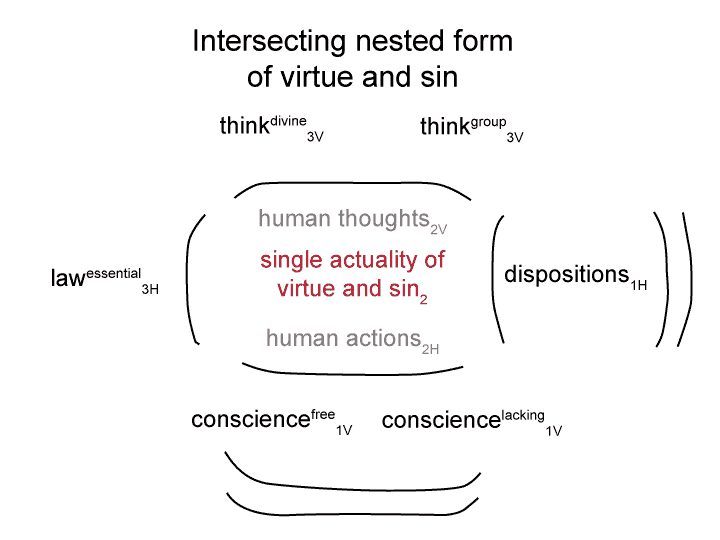Man and Sin by Piet Schoonenberg (1964) 2.2 ED
Summary of text [comment] page 79
Without love, we (humans) cannot integrate our many disparate dispositions.
Sinful acts lead to the inability to love. They deprive us of grace.
Without grace, the sinner cannot integrate his dispositions. The sinner cannot pull himself together.
The sinner is always missing the mark. Plus, he is cruelly depriving himself of participation in a drama that is ultimately far more interesting than the inevitable narcissism of fixating on one’s own dispositions.
[This drama plays out in the person’s movement in the field of ‘the object that brings us all into relation’].

